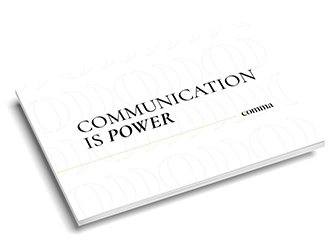In today’s digital age, two forces are redefining the SEO landscape: Artificial Intelligence and SEO. And AI, with its ability to process and analyse huge volumes of data at unimaginable speed, promises to transform SEO in ways we are only beginning to understand. Or, watch out, because when we start to understand it, paradigms change…
Let’s try to take a look at how the convergence of AI and SEO is shaping the future of search, offering businesses new opportunities to reach their audiences in more effective and efficient ways.
What is SGE (Search Generative Experience) ?
During Google’s annual I/O conference, it was announced that an unprecedented revolution is coming for online search engines: the Search Generative Experience (SGE), which incorporates generative AI into search results pages. The arrival of the SGE will have a direct impact on the search experience and user preferences.
But what exactly is this?
Google SGE, (Search Generative Experience), includes artificial intelligence in its search results. Although, for the moment, this technology is still at an experimental stage only in the United States and available at Google Search Labs, the revolution it will bring can already be seen.
The aim is that the user can easily find the answer to their question, avoiding accessing different URLs and allowing them to focus their attention on the information that really interests them.
And what will happen once the SGE is up and running? According to this post by Good Rebels, Google will continue to dedicate a section of the SERP (search engine results page) to organic results and traditional ads. The main new features we can anticipate are:
*Source: Good Rebels.
- The AI will provide summaries of the results, integrating relevant links in the text or at the end, rather than lists.
- The search will be conversational, allowing you to ask detailed questions in natural language. Do you want more information? Just click on the follow-up suggestions at the end of the dialogue window.
- Google will display 3 to 5 snippets*, adapting to the type of query and offering general information, news, maps, ratings and products, backed by Shopping Graph and its 35.billion references.
*Snippets are those Google featured results with short descriptions, questions or videos.
What’s next for AI and Google Search | Google I/O 2023
AI tools revolutionising SEO

For the time being, as this becomes a reality, let’s go for something tangible today. And that’s how AI tools are transforming every aspect of SEO: from keyword research to content optimisation and competition analysis.
Tools such as the well-known ChatGPT offer advanced content generation capabilities, while legendary platforms for SEO professionals such as Ahrefs and SEMrush also use AI algorithms to provide content generation. insights detailed information on SEO performance, keyword targets or SEO opportunities. backlinks (external links). It doesn’t matter one way or the other
Let’s take a closer look at this issue one by one.
- ChatGPT: Every day we find new plugins within ChatGPT 4 that allow us to give our SEO a boost, but mainly we are using it to generate SEO optimised content in an efficient way, helping to cover a wide range of topics and niches more easily than we have been doing.
- Ahrefs: This tool, familiar to all of us who have been involved in SEO at some point, has had a new AI-powered content analysis feature for some time now. It suggests specific keywords to include in your content, based on what ranks best in your niche.
- SEMrush: Another mythical tool but with a “new” AI integration. In this case, it offers a sentiment analysis tool that uses AI to assess users’ opinions about a brand, product or service on the web, which can inform content and SEO strategies.
- Clearscope: It is a content optimisation tool that uses AI to recommend how to improve articles to rank better in search results, focusing on relevance and understanding user intent.
These tools demonstrate the diversity of applications of AI in SEO, from content creation and optimisation to sentiment analysis and keyword research.
The generation of SEO-optimised content is being transformed by AI. AI-based content creation tools are able to produce articles, blogs, and product descriptions that are not only relevant and of high quality, but also optimised for search engines. However, it is crucial to maintain a balance between the use of AI-generated content and the human perspective to ensure that the content remains genuine, engaging and valuable to the reader.
In addition, AI can help identify content gaps on a website, suggest titles based on search trends, and optimise existing content to improve its SEO performance.
Technical SEO optimisation using AI
But let’s move on to another point beyond content that is very interesting: technical optimisation. This is essential for SEO, encompassing aspects such as page load speed, website structure, and mobile experience.
This is where AI plays a crucial role, offering tools that can automatically analyse and optimise these technical aspects. For example, AI can evaluate the loading speed of web pages and recommend specific changes to improve it, such as compressing images or removing unnecessary JavaScript.
In addition, AI tools can track website health in terms of SEO on-page, identifying problems such as broken links, missing or duplicate title tags and meta description issues. By automating these analyses and optimisations, AI allows SEOs and webmasters focus on more complex and creative strategies to improve site ranking and visibility.
Review the ethical implications of the use of Artificial Intelligence in SEO

Of course, the use of AI in SEO brings with it important ethical considerations. As AI tools become more powerful, it is crucial to maintain a clear ethical basis in order to avoid manipulations that may harm the user experience or distort search results.
The transparency in the use of AI for content creation is essential, as is ensuring that AI-generated content maintains high quality, relevance and value for the end user, although this we cannot control… In addition, the use of personal data for personalisation must be done with the highest respect for the privacy and security of users, complying with all applicable regulations such as the GDPR. Managing these ethical issues effectively will be critical to ensuring that the future of AI SEO benefits both users and brands in a fair and transparent manner.
As we move forward, it is essential that SEO professionals and media, marketing and advertising agencies, and other consultancies, remain informed and ethically aware in order to make the most of the opportunities that AI offers, while navigating its complexities responsibly.
As communication professionals, it is important that we bear in mind that, while AI can offer efficiency, accuracy and personalisation, it is the human touch that brings creativity, empathy and ethics. The key to the future of SEO is to find the happy medium where technology amplifies human capabilities without replacing them.
Needless to say, this balance manifests itself in how we conceive and create content. AI can help to identify opportunities, generate drafts and optimise for search engines, but it is human perspectives, stories and emotions that connect with readers and create meaningful experiences..
In conclusion, the integration of AI in SEO is not only a technological evolution, but also an invitation to rethink our approach. By embracing both the possibilities that AI offers and the human values that guide its ethical use, we can create a future of SEO that is not only more advanced, but also more human.
We will continue talking about this issue in other posts, we are sure. You know that with great power comes great responsibility. From comma, we will certainly do so.







